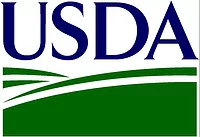Study: Consumers are Drawn to Traceable Foods
New research from the University at Buffalo School of Management suggests that consumers are more likely to purchase food products when stores utilize traceability systems that prove where and how the food was produced and shipped. The study has been published in Information & Management--an academic journal.
The findings aren’t completely surprising as consumers demand to know the source of their food--particularly where and how it was grown or produced. For some buyers, just having that valuable information is enough to spark a purchase--even if it’s priced higher than comparable food products with no traceability details included.
Study co-author Rajiv Kishore, PhD also notes another interesting finding. “If the customer believes regulatory authorities are ensuring accurate production information, he or she is more likely to buy food that is tracked using traceability systems, and even less likely to actually use the food traceability information,”
The research involved a survey of 245 mostly female consumers--mainly because women are the primary grocery shoppers--in Seoul, South Korea--a market where beef traceability systems are a common fixture in grocery stores.
Researchers plan to collect additional data from consumers in other countries to obtain a more representative sample and greater diversity of consumers.
Looking for quick answers on food safety topics?
Try Ask FSM, our new smart AI search tool.
Ask FSM →








